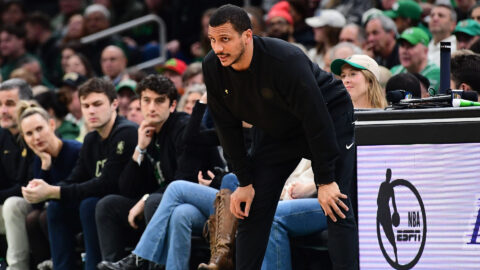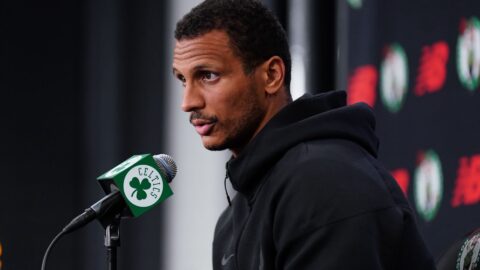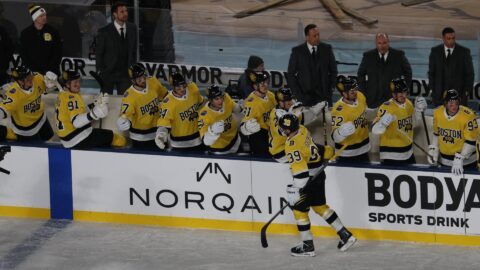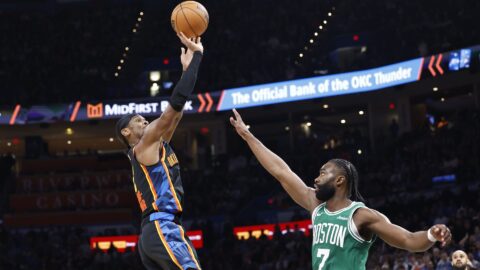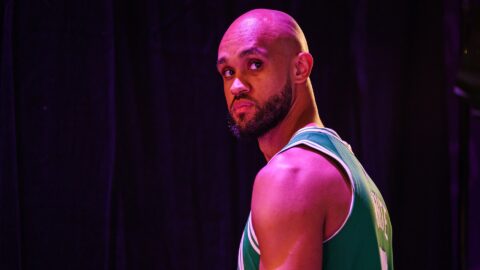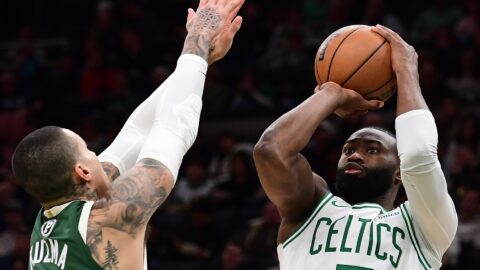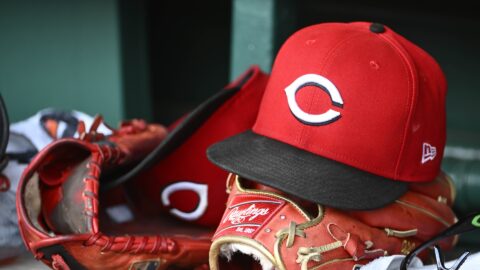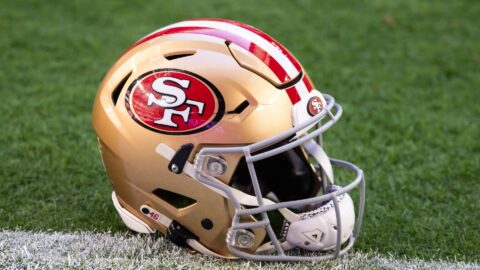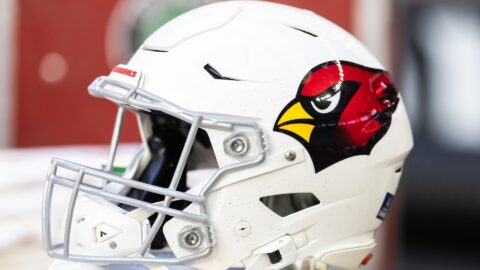This golden era of Red Sox baseball has seen its share of legendary players and superstars coming together to bring Boston four World Series championships since 2004.
And while those players with the likes of David Ortiz, Manny Ramirez, Pedro Martinez, Curt Schilling, Dustin Pedroia, Jon Lester, Mookie Betts -- you get the picture -- get most of the accolades, those world titles aren't won without a full-team effort.
Every title-winning team in any sport has someone who goes above and beyond expectations, often at the most important time, to help reach the mountaintop. As time passes, though, those players aren't appreciated as much as they should be.
So here's one unsung hero from each of the Red Sox's World Series titles since 2004.
Story continues below advertisement
2004
Mark Bellhorn
Bellhorn had a career that was, for the most part, unremarkable. The second baseman was a slightly above-average player, as evidenced by a career bWAR of 8.0 but was never an All-Star or anything like that. Aside from a 2002 campaign with the Chicago Cubs in which he posted an .886 OPS, the 2004 season -- his only full year in Boston -- was the best of his career. Despite leading the league in strikeouts (with 177!), Bellhorn hit .264 with 17 home runs and 82 RBIs. He was an on-base machine, reaching base nearly 40% of his plate appearances, top among all major league second basemen. His 3.4 fWAR ranked fifth among all players at the position. He collected just nine hits over 14 games in the 2004 playoffs, but three of those were home runs, including a game-changing blast in Game 6 of the American League Championship Series as well as the game-winning dinger in the World Series opener against the St. Louis Cardinals.
2007
Hideki Okajima
The Japanese left-hander wasted no time making an impact on American soil. Okajima was an All-Star in his first big league season, finishing sixth in AL Rookie of the Year voting in 2007. Terry Francona called Okajima's number 66 times that season with Boston going 48-18 in those games. Only 15 relievers in all of baseball with at least 40 innings pitched had a lower ERA than Okajima's 2.22 mark, as he also held opposing hitters to a paltry .197 batting average while setting the table for Sox closer Jonathan Papelbon. Okajima then allowed just three earned runs in eight postseason appearances. That included a remarkable performance in Game 2 of the World Series. Okajima entered in the sixth with runners on first and second as Boston clung to a 2-1 lead. The lefty induced a groundout and strikeout to get out of the jam on the way to 2 1/3 perfect innings of relief with four strikeouts.
2013
Craig Breslow
Trying to spotlight one unsung hero on a team like the 2013 Red Sox is not easy. A supposed bridge year turned into a world championship on the backs of unheralded, underappreciated players, many of whom had the best years of their careers that season. Perhaps no one embodied that idea as much as Breslow. The left-hander was part of a bullpen that had its ups and downs but locked in at the highest-leverage situations. Breslow allowed just four hits all season in situations with two outs and runners in scoring position. In "late and close" scenarios, opposing batters hit just .247. Those numbers don't include the postseason where he was called on to get some massive outs. John Farrell turned to him in the seventh inning of Game 3 where he escaped a jam on the way to a 1-0 Red Sox win, and he also pitched late in Games 4 and 6 -- both wins -- retiring Detroit sluggers Prince Fielder and Victor Martinez in each.
Story continues below advertisement
2018
Ryan Brasier
Brasier didn’t have memorable moments like fellow bullpen members Joe Kelly, Matt Barnes or Craig Kimbrel, but he was remarkably consistent all season long. The 2018 Red Sox were historically good, but they performed even better when Brasier took the ball. Counting the postseason, the Red Sox walked off the field winners in 33 of the 43 games he appeared in that year. Brasier's ERA- (a stat designed to judge how pitchers performed compared to league average) ranked sixth among 250 relievers with at least 30 regular-season innings. He stranded a team-best 86.2% of base runners, good for 15th in the bigs. Brasier largely did what was asked of him in the playoffs while being overshadowed by other headline-grabbing performances. He logged 8 2/3 innings over nine games, allowing just one run on seven hits. His 2018 campaign was by far the best of his career, as he never quite regained that form. In fact, you could argue his struggles in recent years -- leading to his release in 2023 -- ultimately overshadowed his invaluable performance in '18.
Featured image via Kim Klement/USA TODAY Sports Images

